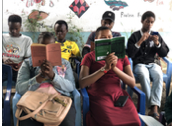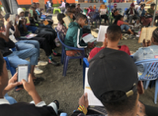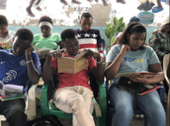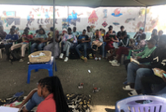Habari zenu wapenzi wa lugha na hekima! Karibuni tena katika kipindi chetu cha leo cha Methali! Methali ya leo ni “Mtoto akilia wembe, mpe.” Je, unaijua? Kwa walezi wengi, inaweza kuonewa… kali sana, au sivyo? Ina maana gani kwako? Je, unakubaliana nayo? Tushirikiane mawazo.
Nikisikia nitasahau, nikiona nitakumbuka, nikifanya nitaelewa.
-Mwalimu Amos
Mtoto akitaka wembe, basi mpe ili aelewe kwanini alionywa dhidi ya kucheza nao. Methali hii inaonyesha umuhimu wa kuwapa watu nafasi za kujifunza kutokana na uzoefu wao wenyewe, hata kama wanaweza kuumiwa (kidogo). Vilevile, hata ukikataa kumpa, labda hatatiii na atacheza nao ukiwa nje. Methali hii inaweza kutumika pia kama onyo kwa mtu anayepuuza ushauri au kusisitiza njia yake. Ingawa ni muhimu kusikiliza ushauri na maonyo kutoka kwa wengine, wakati mwingine tunahitaji kuona matokeo ya vitendo vyetu wenyewe ili kuelewa madhara yake.
Adhabu ya Asili (Natural Consequences)
Katika eneo la malezi, methali hii inafundisha kanuni ya Natural Consequences (Adhabu Halisi au
Adhabu ya Asili). Adhabu ya asili ni matokeo yatakayokuja kwa sababu ya tabia ya mtoto mwenyewe. Tofauti na adhabu ya kutolewa au
adhabu ya viboko, adhabu ya asili hujitokeza bila mlezi kujiingilia. Kwa mfano, fikiria kama mwanako amesahau daftari yake nyumbani. Ungefanyaje? Wazazi wengine wanajibu “Singefanya chochote, maana atahitaji kueleza kwa mwalimu wake.” Wengine wanasema “Ningekimbia shuleni ili kumletea daftari, halafu jioni ningempa adhabu.”
Ipi bora? Jibuni hapo chini…
Swali: Je, mtoto akilia nyoka utampa?
Sawa tumekubaliana mtoto akilia wembe, mpe. Lakini… fikiria kama mtoto analia kitu cha hatari zaidi— je utakubali? Yesu aliwauliza wazazi: “
Mtoto akiomba samaki, je, atampa nyoka?” Akilia nyoka, utampa? Wembe unaweza kusababisha jeraha ndogo, lakini si hatari sana kama nyoka mwenye sumu.
Wewe kama mzazi, utakubali kiasi gani cha hatari ili ajifunze mwenyewe? Kama anaomba kuacha masomo ili kucheza michezo za simu sikuzote? Kama anaomba kumwoa/kumwolewa na mtu ambaye haumwamini katika umri mdogo? Yaani pia kuna maamuzi muhimu ambayo watoto hawako tayari kujifanyia.
Je wewe kama mzazi unawezaje kuamua au kutambua kama unapaswa kumwokoa / kumlinda mwanako, ama kama unapaswa kumwachia afunzwe na ulimwengu? Wazazi na walezi wote tunaomba maoni yenu!
Nyoka ana madhara.
-Mwalimu Shila
Utekelezaji wa methali hii katika maisha ya kila siku
Elimu: Watu hukumbuka walichojifunza kwa vitendo kuliko walichoambiwa kwa maneno. Utafute nafasi za kutekeleza kile unachojifunza.
Malezi: Mpe mtoto uhuru na nafasi za kujifunza kupitia uzoefu. Usimtatulie kila jambo, na usiogope anapofeli, kama hakuna hatari wala madhara ya muda mrefu, maana kufeli ni nafasi ya kujifunza kwake.
Kusikiliza: Ukipuuza maonyo na shauri, usishangaye kuona madhara yaliyotabiriwa.























